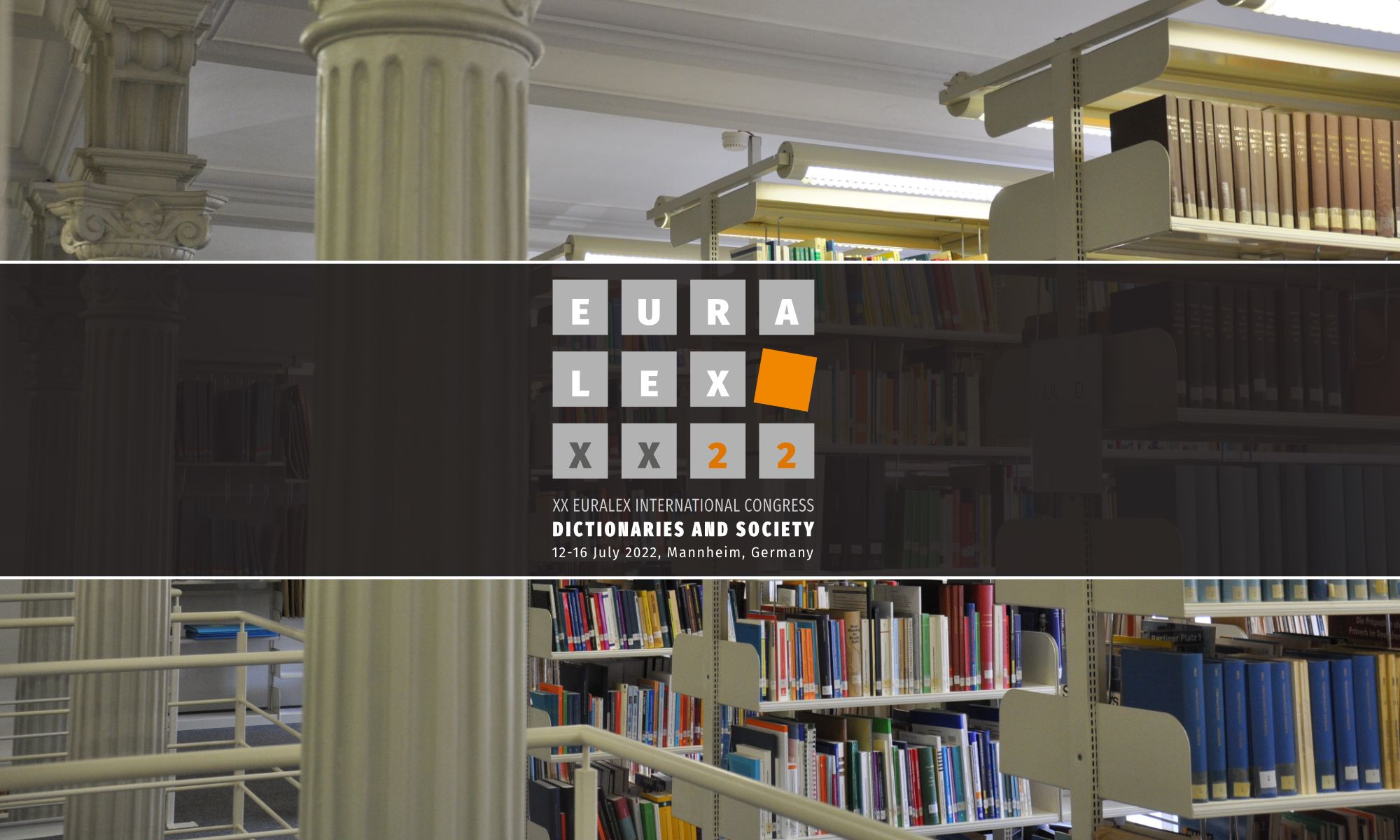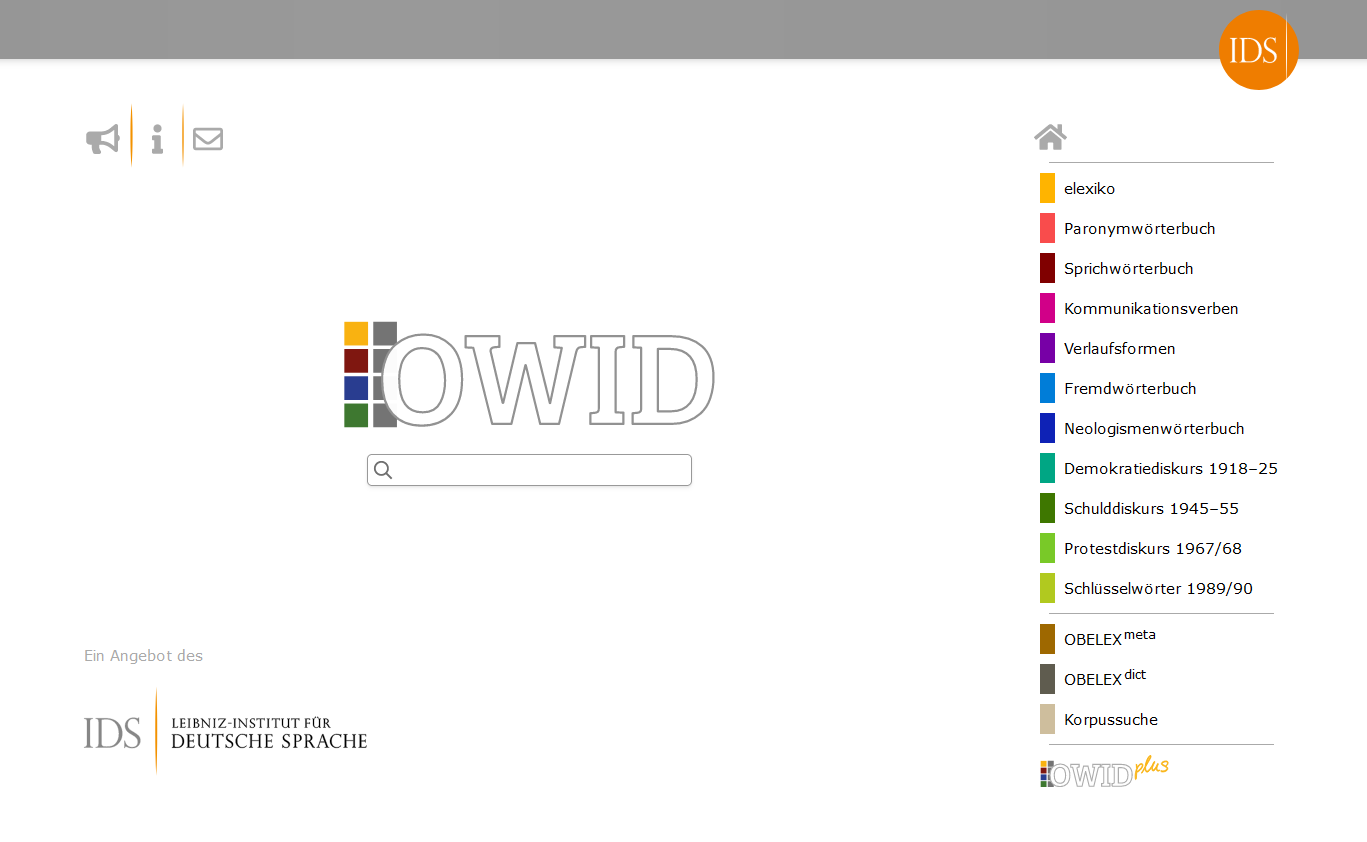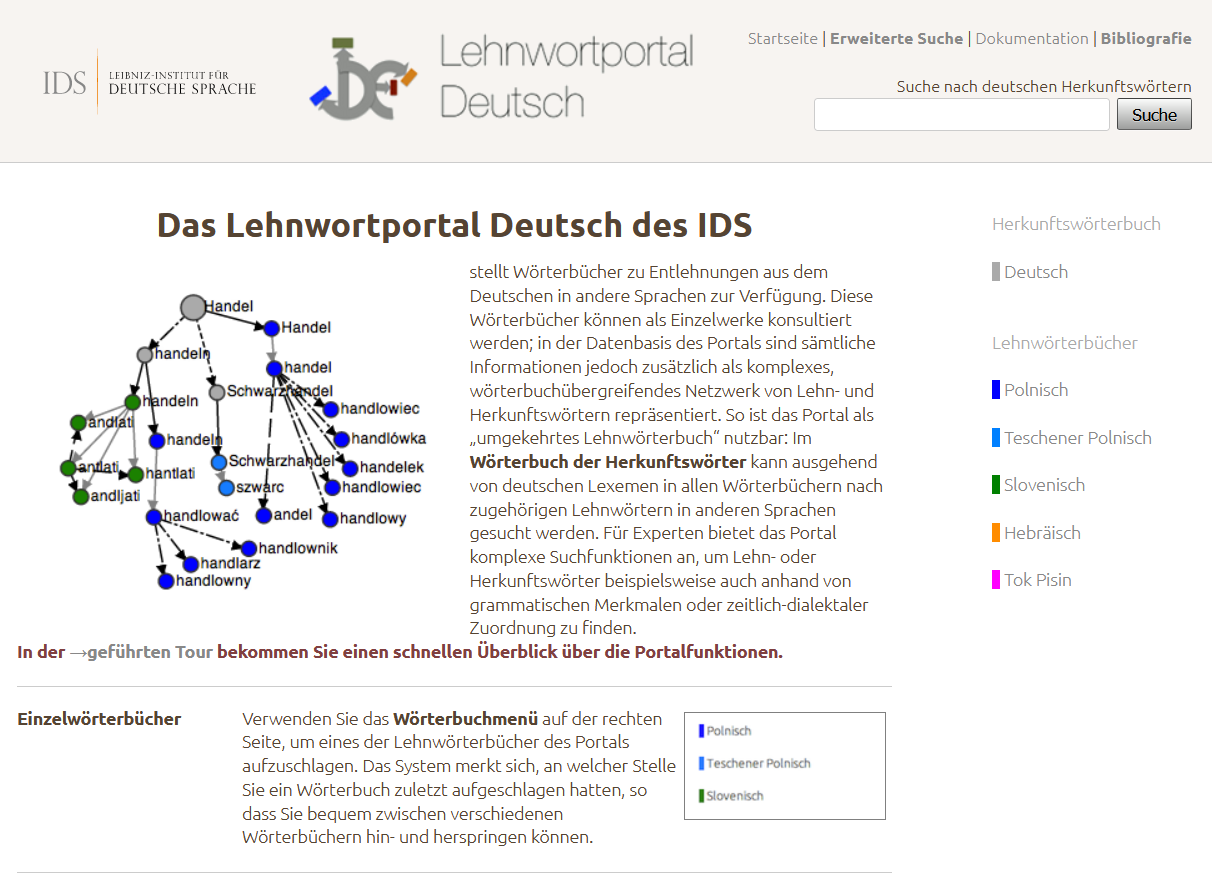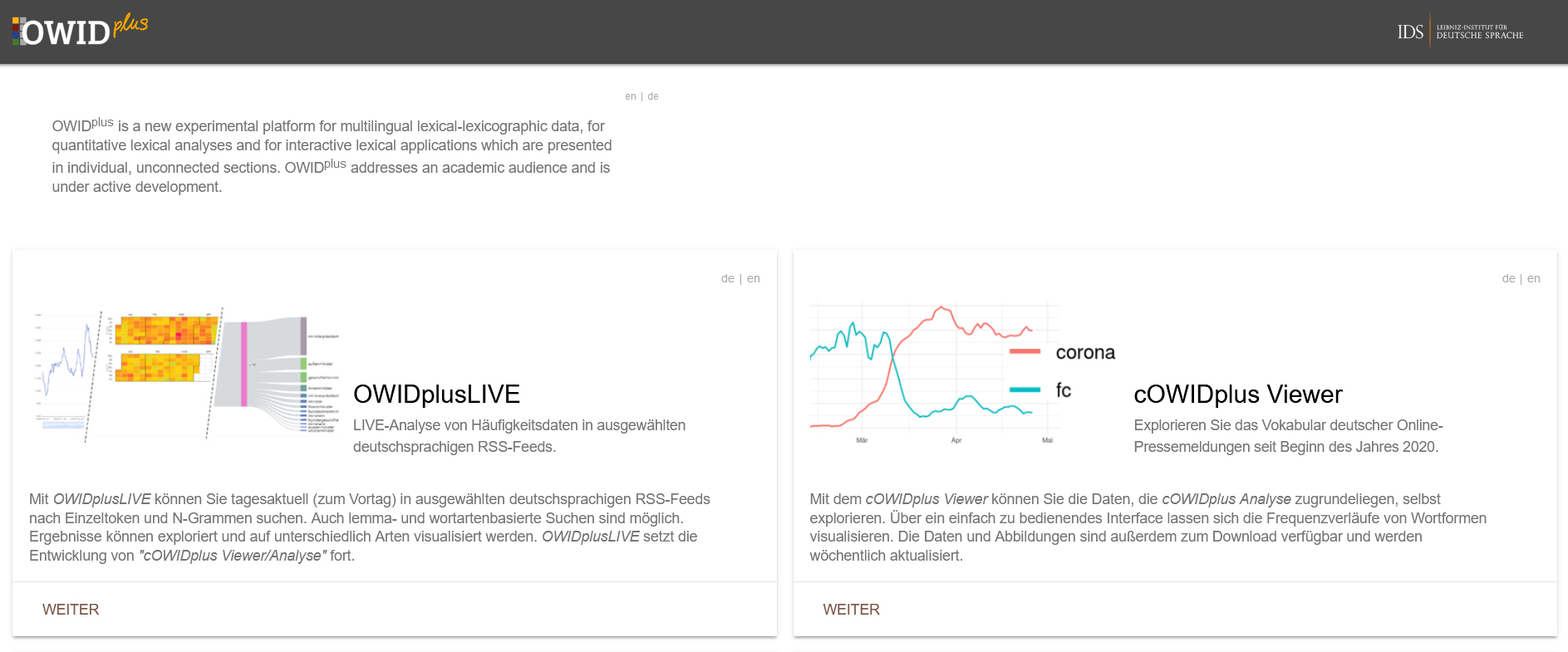Local organisers
The Leibniz Institute for the German Language (IDS) in Mannheim
The Leibniz Institute for the German Language (IDS) in Mannheim was founded in 1964. It is the central extramural institute for research and documentation of the German language, both, in its contemporary usage and in its recent history.
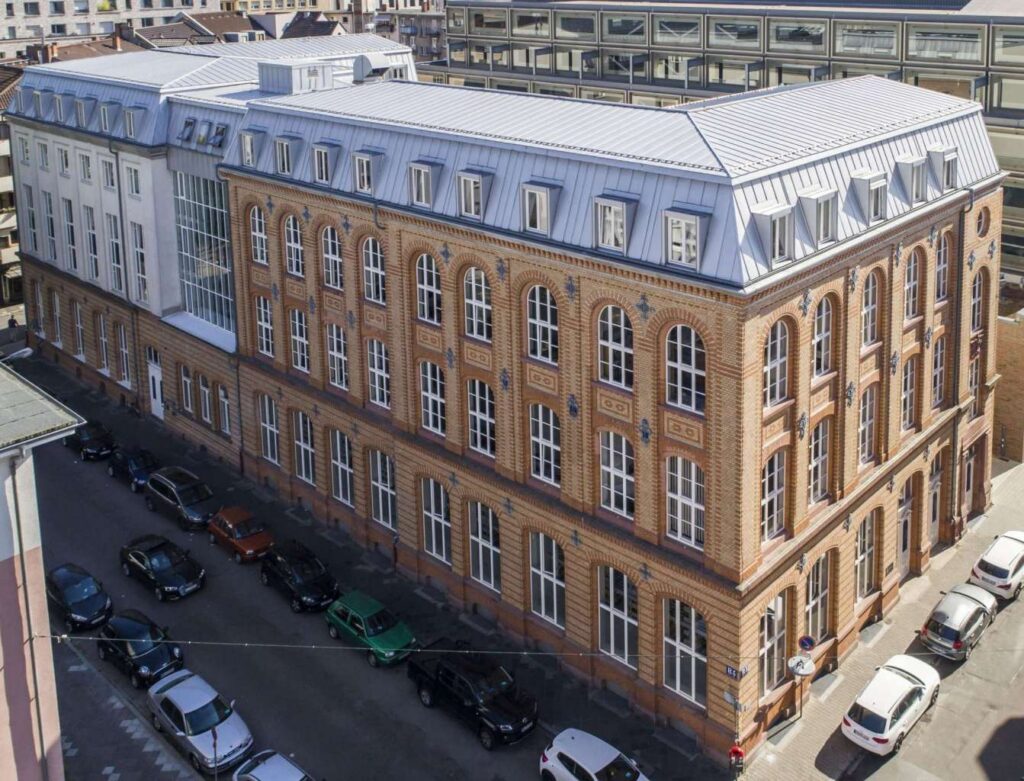
The institute is organised into departments and divisions with each encompassing areas of intersecting expertise. These predominantly pursue long-term projects, which means that work in larger research groups is an essential requirement. Our research ranges from theory to practical applications and it embraces various lexical, pragmatic, syntactic, corpus- and computer-linguistic dimensions of German linguistics, past and present. The institute’s home is a larger historic building with the capacity to host pre-conference workshops (see pictures below).
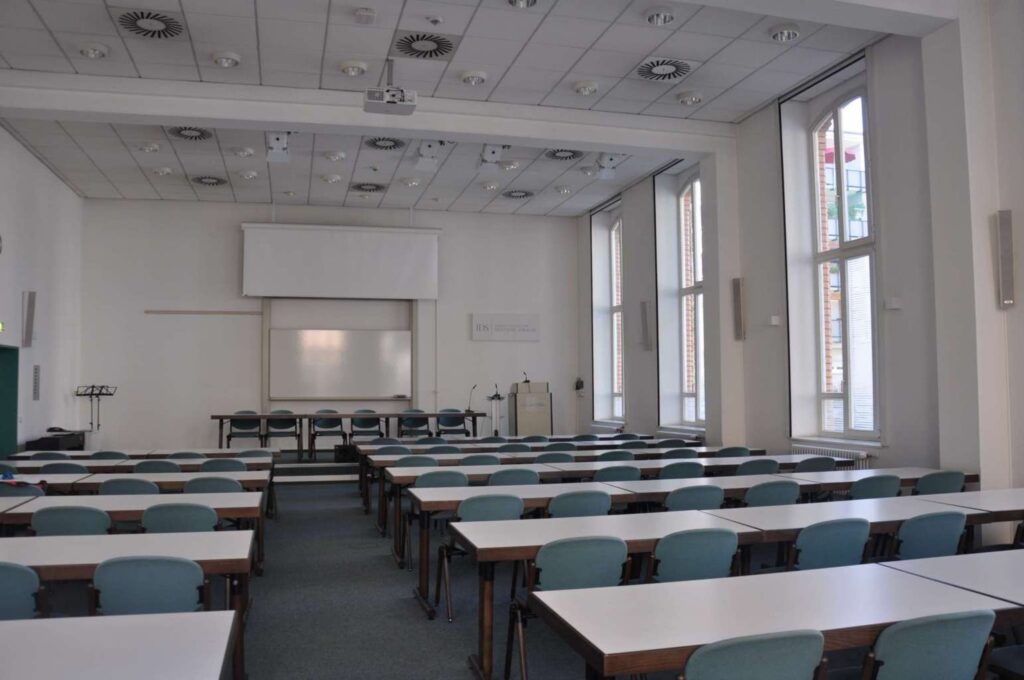
Photo: A. Trabold 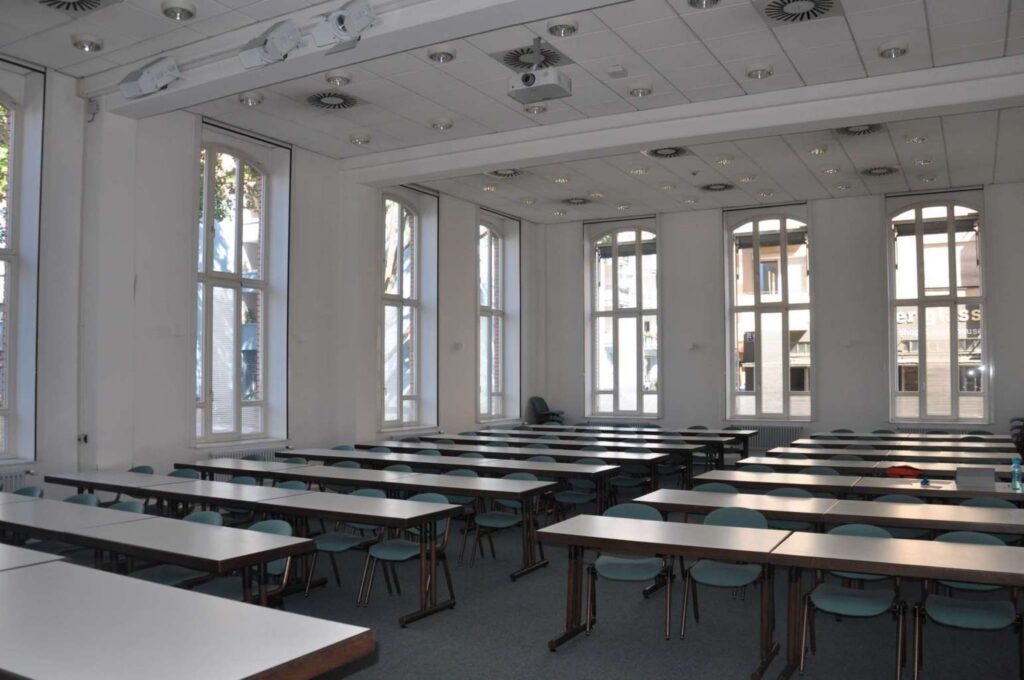
Photo: A. Trabold
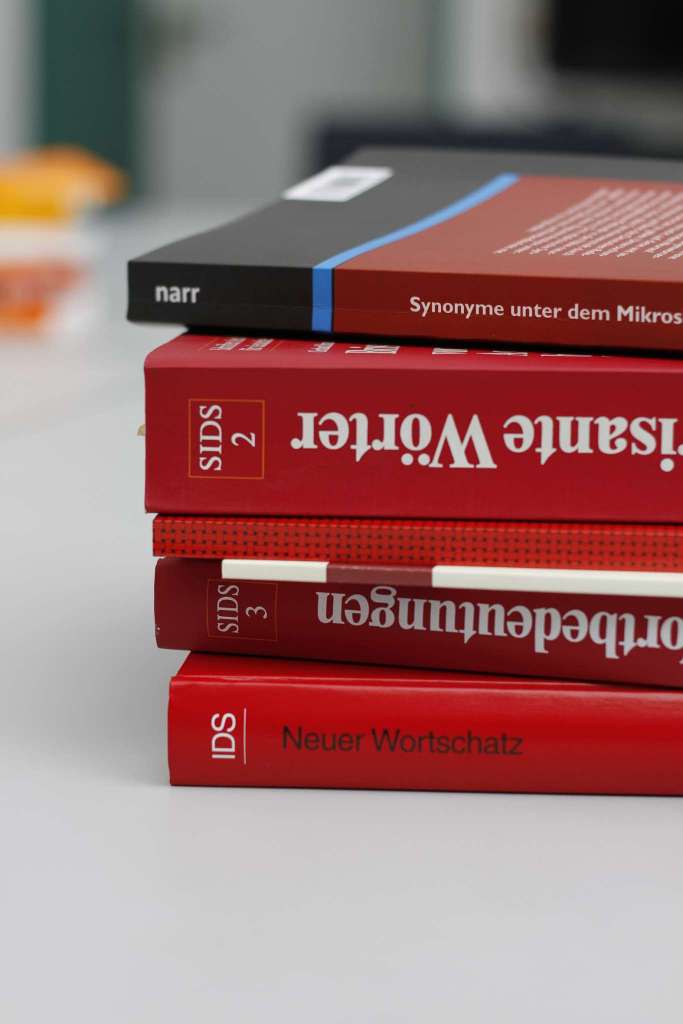
The “Department of Lexical Studies” is home to the members of the Organising Committee. Here, research activities centre around the lexical portfolio of contemporary German and its recent history. The research projects analyse, describe and document a variety of classes of lexical units, such as neologisms, foreign and loan words, verbs and their argument structure, compounds, spoken language lexis, paronyms or the vocabulary of political discourse, and make these the subject of linguistic theory formation. Their works and investigations are based on extensive empirical, predominantly corpus-linguistic analyses. Research is conducted in the following three areas:
- Lexicography and documentation of language,
- Lexical syntagmatics and
- Empirical and digital lexical studies.
At the hub of our research is the cross-departmental network “Dynamics of the lexicon” (incorporated in the area “Empirical and digital lexical studies”), which supplements the work in the individual areas and reflects strong links across the projects.
The department’s work is predominantly published in the three online platforms OWID, Lehnwortportal Deutsch (German loan word platform) and OWIDplus.
These promote easy public access to our work and showcase a considerable number of research contributions ranging from smaller empirical lexical studies to long-term lexicographic projects.
Organising Committee

Annette
Klosa-Kückelhaus (IDS)
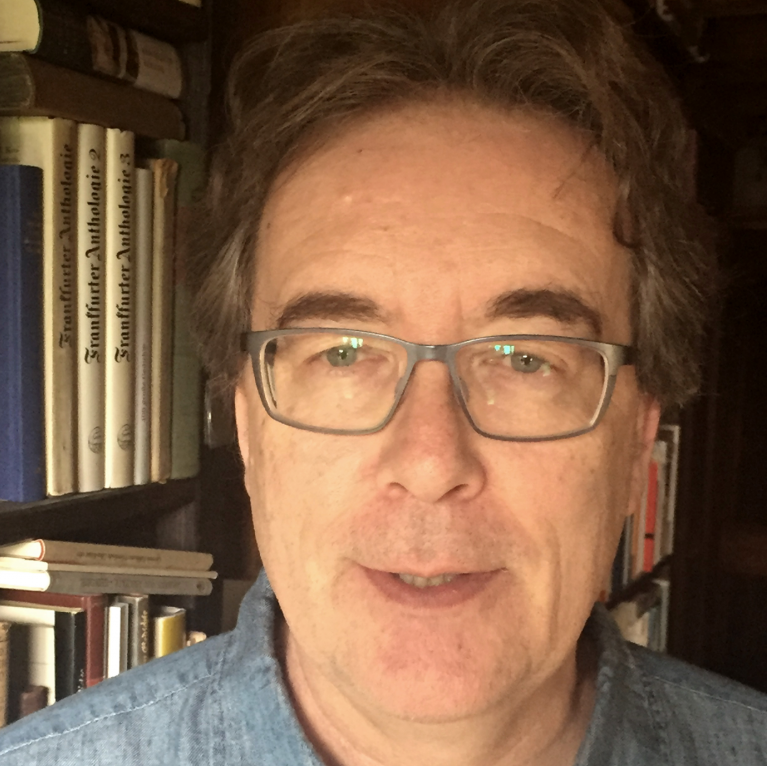
Stefan Engelberg
(IDS)
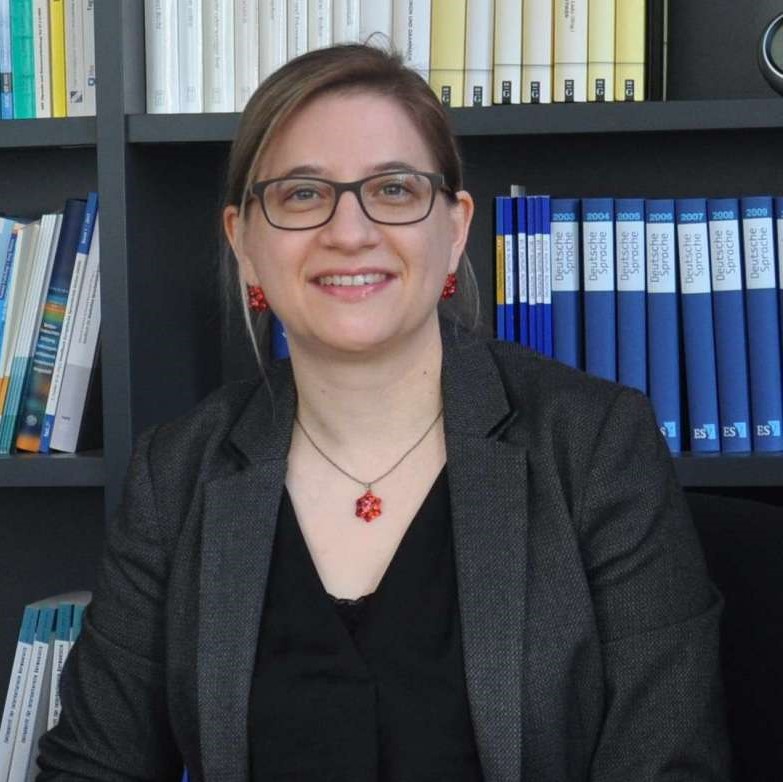
Christine Möhrs
(IDS)
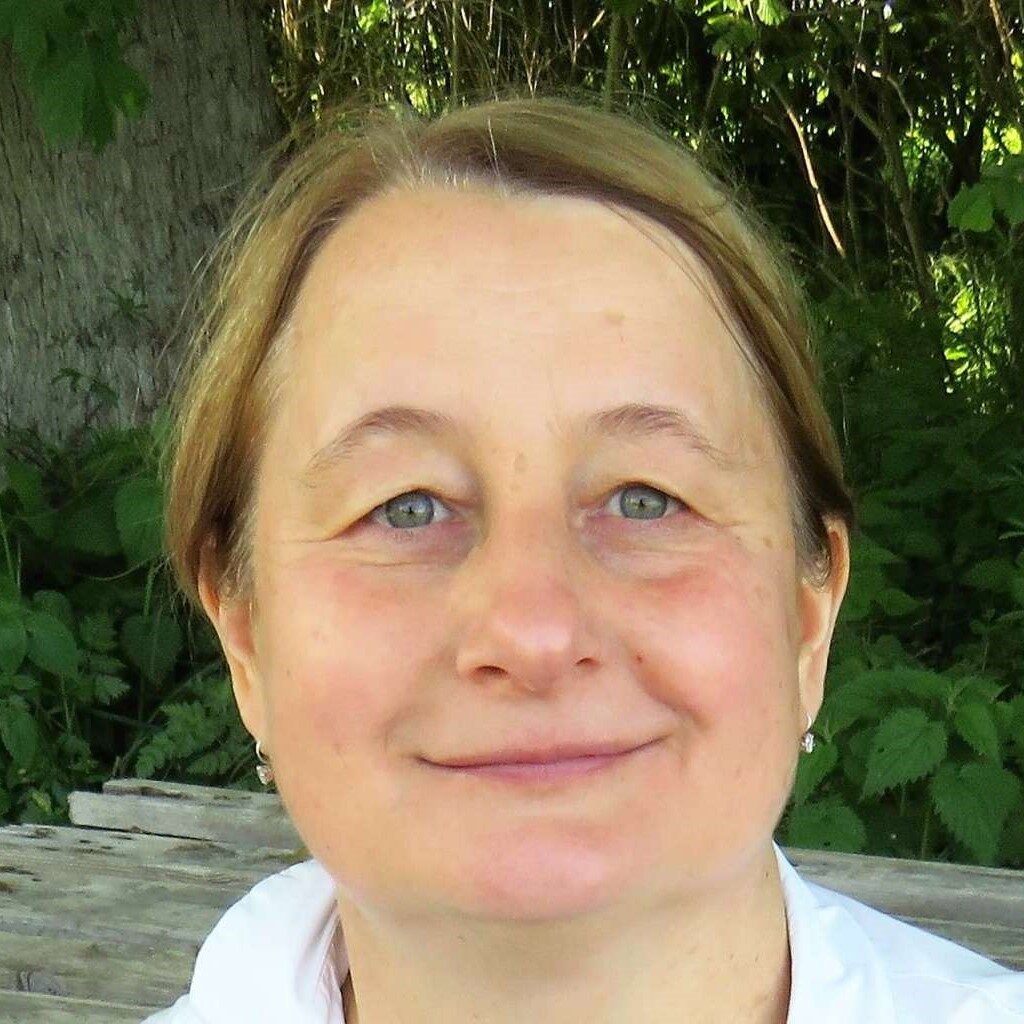
Petra Storjohann (IDS)
Programme Committee
- Gilles-Maurice de Schryver (Ghent University, Belgium & University of Pretoria, South Africa)
- Stefan Engelberg (The Leibniz Institute for the German Language)
- Annette Klosa-Kückelhaus (The Leibniz Institute for the German Language)
- Iztok Kosem (Jožef Stefan Institute / University of Ljubljana, Slovenia)
- Robert Lew (Adam Mickiewicz University, Poland)
- Christine Möhrs (The Leibniz Institute for the German Language)
- Petra Storjohann (The Leibniz Institute for the German Language)
- Kristina Štrkalj Despot (Institute of Croatian Language and Linguistics, Croatia)
Scientific Committee
- Andrea Abel (EURAC, Italy)
- Arleta Adamska-Sałaciak (Adam Mickiewicz University, Poland)
- Hauke Bartels (Sorbian Institute, Germany)
- Hans Bickel (Schweizerisches Idiotikon, Switzerland)
- Anna Braasch (University of Copenhagen, Denmark)
- Dominik Brückner (The Leibniz Institute for the German Language, Germany)
- Thomas Burch (Trier Center for Digital Humanities, Germany)
- Lut Colman (Dutch Language Institute, Netherlands)
- Paul Cook (University of New Brunswick, Canada)
- Gilles-Maurice de Schryver (Ghent University, Belgium & University of Pretoria, South Africa)
- Janet DeCesaris (Pompeu Fabra University, Spain)
- Idalete Maria Silva Dias (University of Minho, Portugal)
- María José Dominguez Vazquez (University of Santiago de Compostela, Spain)
- Philip Durkin (Oxford University Press, Great Britain)
- Anne Dykstra (Fryske Academy, Netherlands)
- Anna Dziemianko (Adam Mickiewicz University, Poland)
- Ilse Feinauer (Stellenbosch University, South Africa)
- Edward Finegan (University of Southern California, USA)
- Carolina Flinz (University of Milan, Italy)
- Thierry Fontenelle (European Investment Bank, Belgium)
- Polona Gantar (University of Ljubljana, Slovenia)
- Zoe Gavriilidou (Democritus University of Thrace, Greece)
- Alexander Geyken (Berlin-Brandenburg Academy of Sciences, Germany)
- Sylviane Granger (Catholic University of Louvain, Belgium)
- Oddrun Grønvik (University of Oslo, Norway)
- Volker Harm (The Göttingen Academy of Sciences and Humanities, Germany)
- Ulrich Heid (Hildesheim University, Germany)
- Zita Hollós (Károli Gáspár University, Hungary)
- Miloš Jakubíček (Lexical Computing CZ s.r.o., Czech Republic)
- Maarten Janssen (University of Vienna, Austria)
- Besim Kabashi (Friedrich-Alexander University Erlangen, Germany)
- Jelena Kallas (Institute of the Estonian Language, Estonia)
- Heidrun Kämper (The Leibniz Institute for the German Language, Germany)
- Ilan Kernerman (K Dictionaries, Israel)
- Alexander Koplenig (The Leibniz Institute for the German Language, Germany)
- Iztok Kosem (Jožef Stefan Institute / University of Ljubljana, Slovenia)
- Simon Krek (Jožef Stefan Institute / University of Ljubljana, Slovenia)
- Tanara Zingano Kuhn (University of Coimbra, Portugal)
- Kathrin Kunkel-Razum (Duden-Verlag, Germany)
- Margit Langemets (Institute of the Estonian Language, Estonia)
- Lothar Lemnitzer (Berlin-Brandenburg Academy of Sciences, Germany)
- Robert Lew (Adam Mickiewicz University, Poland)
- Marie-Claude L’Homme (University of Montreal, Canada)
- Anja Lobenstein-Reichmann (The Göttingen Academy of Sciences and Humanities, Germany)
- Henrik Lorentzen (The Danish Language and Literature Society, Denmark)
- Carla Marello (University of Turin, Italy)
- Tinatin Margalitadze (Ilia State University, Georgia)
- John P. McCrae (National University of Ireland, Ireland)
- Peter Meyer (The Leibniz Institute for the German Language, Germany)
- Frank Michaelis (The Leibniz Institute for the German Language, Germany)
- Julia Miller (University of Adelaide, Australia)
- Fabio Mollica (University of Milan, Italy)
- Orion Montoya (Brandeis University, USA)
- Rosamund Moon (University of Birmingham, Great Britain)
- Carolin Müller-Spitzer (The Leibniz Institute for the German Language, Germany)
- Kilim Nam (Kyungpook National University, South Korea)
- Hilary Nesi (Coventry University, Great Britain)
- Vincent Ooi (National University of Singapore, Singapore)
- Maike Park (The Leibniz Institute for the German Language, Germany)
- Ralf Plate (The Academy of Sciences and Literature Mainz / University of Trier, Germany)
- Kristel Proost (The Leibniz Institute for the German Language, Germany)
- Natascia Ralli (EURAC, Italy)
- Stefan Schierholz (Friedrich-Alexander University Erlangen, Germany)
- Thomas Schmidt (The Leibniz Institute for the German Language, Germany)
- Hindrik Sijens (Fryske Academy, Netherlands)
- Egon W. Stemle (EURAC, Italy)
- Frieda Steurs (Dutch Language Institute, Netherlands)
- Kathrin Steyer (The Leibniz Institute for the German Language, Germany)
- Philipp Stöckle (Austrian Academy of Sciences, Austria)
- Kristina Štrkalj Despot (Institute of Croatian Language and Linguistics, Croatia)
- Janusz Taborek (Adam Mickiewicz University, Poland)
- Elsabé Taljard (University of Pretoria, South Africa)
- Pius ten Hacken (University of Innsbruck, Austria)
- Carole Tiberius (Dutch Language Institute, Netherlands)
- Yukio Tono (Tokyo University of Foreign Studies, Japan)
- Lars Trap-Jensen (The Danish Language and Literature Society, Denmark)
- Anna Vacalopoulou (Institute for Language and Speech Processing, Greece)
- Carlos Valcárcel Riveiro (University of Vigo, Spain)
- Ruth Vatvedt Fjeld (University of Oslo, Norway)
- Craig Volker (James Cook University Cairns, Australia)
- Sabine Wahl (Austrian Academy of Sciences, Austria)
- Geoffrey Williams (Université Bretagne Sud, France)
- Sascha Wolfer (The Leibniz Institute for the German Language, Germany)
